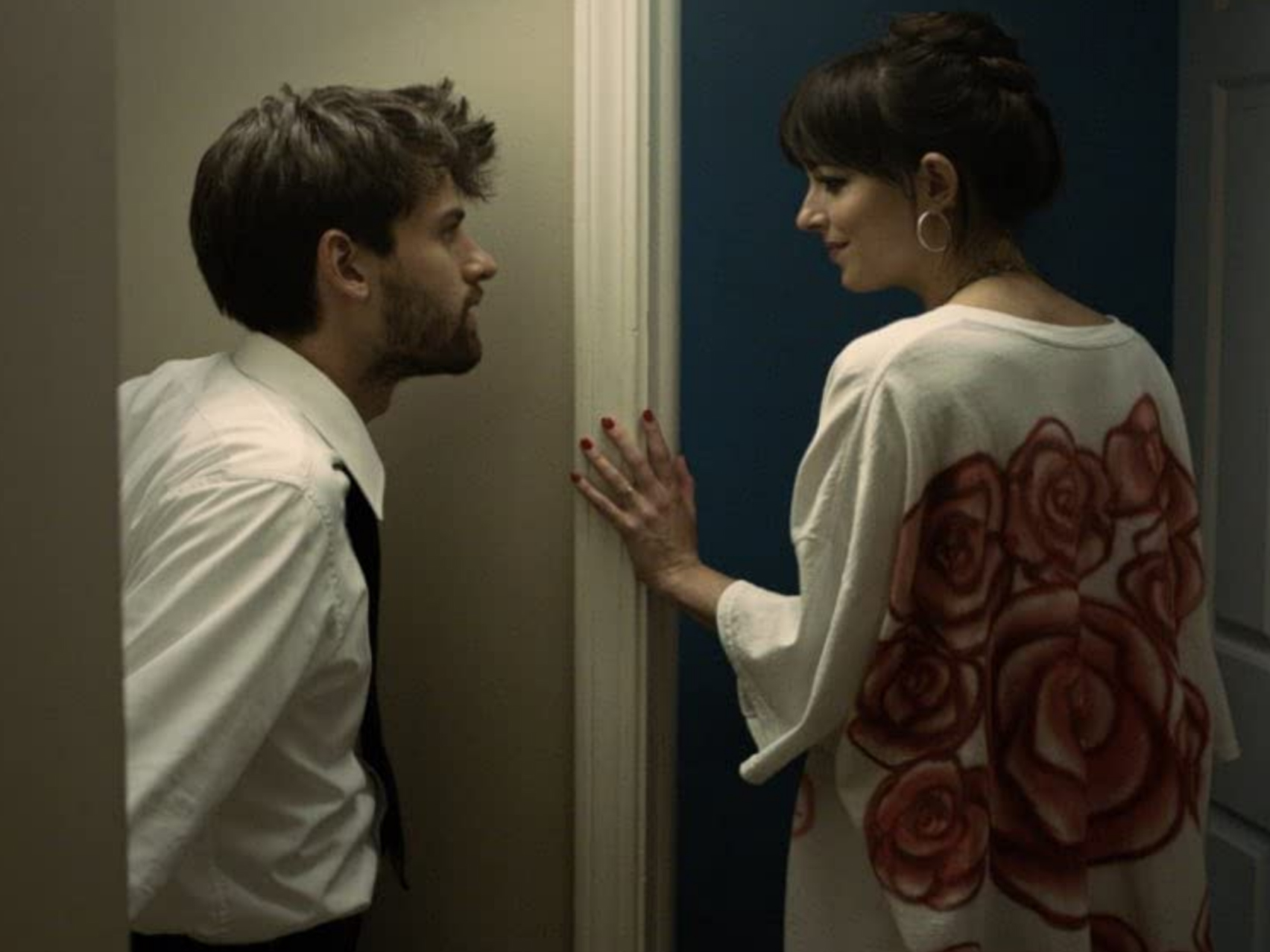
- Festivals
“Cha Cha Real Smooth”: The Ritual of Growing Up
“I think the thing that I love so much is Cooper’s voice,” testifies Dakota Johnson about her director after the screening of their film Cha Cha Real Smooth. “It’s his heart that I’m in puppy-love with. The way he studies people. The way he absorbs people. How he is able to write them is really special.”
‘Those people’ begin with a young 22-year-old graduate named Andrew (Cooper Raiff) who seems to have no clear life path going forward. He feels stuck back at home with his mother and stepfather (Leslie Mann and Brad Garrett), in New Jersey. But college did teach him one thing. Two, actually. Drinking and partying. These skills sure must make him the perfect candidate for a job organizing parties – starting with the bar and bat mitzvahs of his younger brother’s classmates. When Andrew befriends a local mom, Domino (Dakota Johnson), and her autistic daughter, Lola (Vanessa Burghardt), he discovers a future he wants. Even if it might not be his own.
Johnson expands on what drew her to co-star and produce this particular project. “The relationship between Domino and Andrew, and then the relationship between Domino and Lola, and Andrew and Lola, those things are special and they’re not common. They’re not common on-screen but they are common in life, and it’s important that they’re on screen.”
As for Raiff, whereas his directorial debut Shithouse centered on a lonely college freshman who seeks acceptance, he now graduates to the next phase of Gen X life, when the big question is: What do I do now? What better place to examine those existential issues than at bar and bat mitzvah events, the traditional rite of passage for Jewish teenagers into adulthood.
“I thought it was very, very funny the idea of a 22-year-old, who’s just not at all a man, helping these little old 13-year-old kids be men and women,” adds the Texas native who used that concept as his initial launching pad. “My middle school was 30% Jewish. I went to a bar mitzvah or bat mitzvah every single weekend, sometimes doubled. It’s the most visceral time of your life.”
Though Raiff himself is not Jewish, most of his friends are. His inclusion in their rituals, prayers, and traditions intrigued him. “I learned so much about my friends. I also had my first kiss at a bar mitzvah. That’s a very special, awkward, insane time. I really wanted to do a movie where I got to show that first kiss at a bar mitzvah. That was, ultimately, what it was.” It is at one of these bar mitzvahs that Andrew meets Domino. As her name suggests, the pieces soon begin to fall. She’s 32-year-old. Never has she experienced motherhood in her personal life.
Cinematically, for Dakota Johnson, this is now back-to-back movies (including her role in the recent Golden Globe-nominated The Lost Daughter) where the actress has played a parent. She elaborates on her fascination. “My best friend is a mother of two kids, who are my God babies. She’s a big part of if I play a mother in a film,” the actress explains. “it’s a lot of watching her be a mom and asking her questions about what it really feels like deep on the inside. But I don’t know, I guess just observing people. I also grew up with a lot of siblings. I’m not a mother yet, so, I don’t have my own experience to draw from. But I did have a lot of siblings. I did raise a lot of them or take care of them in a lot of ways.”
As for how cathartic the writing was for him, Raiff distances himself from Andrew.
“It’s really none of me,” he confesses. “I was writing it for myself. I never pulled from a life experience in that way. I pulled from my feelings, feelings that I have, but there weren’t certain events that I pulled from.
Those feeling are manifested as it allows both his main protagonists to lay out their emotional vulnerabilities, usually unveiled in one-on-one conversations.
“I have a lot of friends and family members who really enjoy one-on-one conversations,” Raiff sums up. “I like to say certain things with certain scenes. It’s not about trying to be vulnerable. It’s just trying to get at what the movie’s trying to say through a conversation. I always have a very specific goal in mind, but I also try to make it as naturalistic as possible. That’s how I approach it.”

